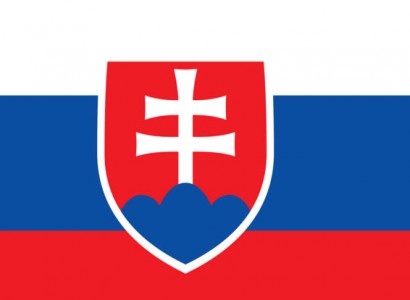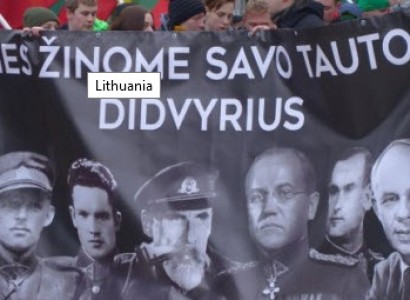
Slovakia’s ruling party lost its parliamentary majority, and neo-Nazis gained 8 per cent of the vote in Saturday’s election. More than 200,000 Slovakians voted for the neo-Nazi People’s Party Our Slovakia (L’SNS). That figure includes 23 per cent of first-time voters. Some of the fourteen elected L’SNS MPs were once monitored by the state. But they are now free to express their views in the National Council. Marian Kotleba, who leads the L’SNS, gained a parliamentary seat. He was elected governor of the Banská Bystrica Region (BBSK) in 2013. Kotleba’s brother, Martin, also gained a seat in parliament. Natália Grausová, another L’SNS MP has defended the Slovak regime which acted as a Nazi satellite in World War II. The Nazis murdered 75,000 Slovak Jews (around 83 per cent of the pre-war total). Deportations stopped after a Vatican representative intervened. But after the Slovak National Uprising in 1944, the SS took control of the fascist Hlinka Guard militia. Before taking office, Marian Kotleba fashioned himself in the image of the Hlinka Guard. Mr Kotleba established his first political party Slovenska Pospolitost (Slovak Brotherhood) in 2003. The interior ministry banned it in 2006 for its incitement to racial, national and religious hatred. [...]
The post Slovakia election: neo-Nazi party gains fourteen seats appeared first on Religious Reader.
Continue Reading
Nationalists marched in Kaunas, a city east of Lithuania’s capitol of Vilnius, to celebrate alleged Nazi collaborators. Members of defendinghistory.com – a website dedicated to exposing extremism in Lithuania monitored the 16 February march. The Union of Nationalist Youth of Lithuania organised the march to fall on the anniversary of Lithuania’s declaration of independence in 1918. Under the banner “We Know Our Nation’s Heroes”were pictures of Adolfas Ramanauskas-Vanagas, Jonas Noreika, Povilas Plechavičius, Kazys Škirpa, Antanas Baltūsis-Žvejas, and Juozas Ambrazevičius-Brazaitis. Individuals accused of direct complicity in the Holocaust or fighting alongside Nazi forces. The Soviet Union invaded Lithuania in 1940. And within two months had annexed the country. A year later and Lithuania had absorbed Jewish refugees fleeing Nazi tyranny in Poland. This swelled Lithuania’s Jewish population to 250,000 (10 per cent of the population). Juozas Ambrazevičius-Brazaitis formed a provisional government after Nazi Germany had expelled the Soviets. Nazi Germany had banned the preferred choice of Kazys Skirpa from returning to Lithuania. It lasted for six weeks. Some accuse it of it complicity with the invading Nazi forces. Others would argue that it attempted in vein to restore statehood. The provisional government had welcomed the Nazi vision for a ‘new Europe’. [...]
The post Lithuanian neo-Nazi march celebrates Nazi collaborators appeared first on Religious Reader.
Continue Reading